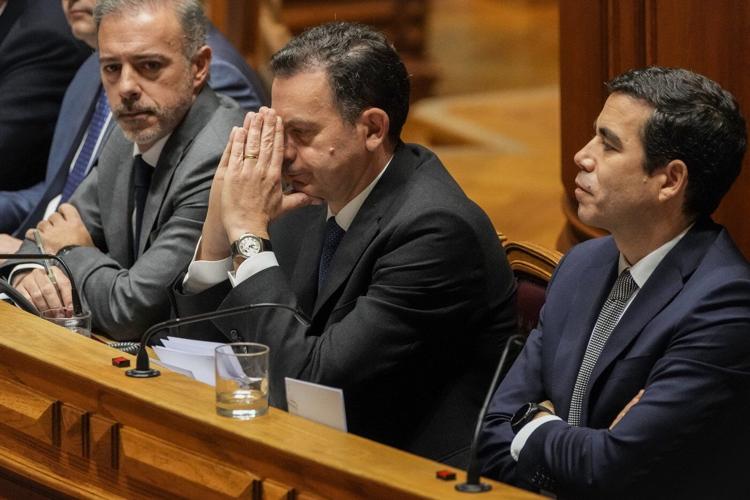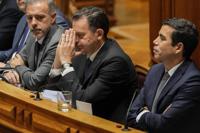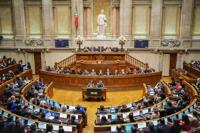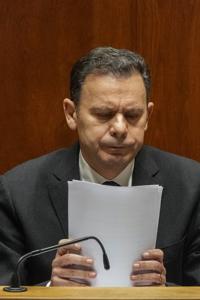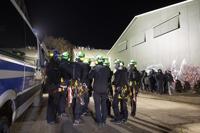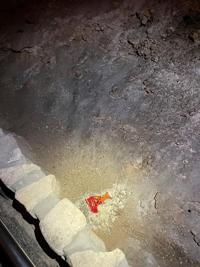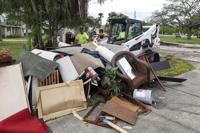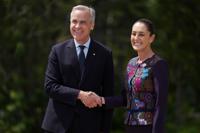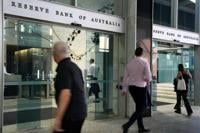LISBON, Portugal (AP) 鈥� Portugal slid back into more political uncertainty Wednesday after its third government fell in as many years when Prime Minister Luis Montenegro lost a confidence vote in Parliament.
The demise of the minority government marks the worst spell of political instability in 50 years of Portuguese democracy.
Here's a look at what led up to the vote, and what is next for the European Union country of 10.6 million people:
How did Lisbon's center-right government fall?
Montenegro submitted himself to the confidence vote after he was accused of a potential conflict of interest regarding a family law firm. It recently emerged that the firm was receiving payments from a company that has a major gambling concession granted by the government.
Montenegro, who took power less than a year ago, held the confidence vote to 鈥渄ispel uncertainty." Instead, opposition parties teamed up to topple him.
What comes next?
Portuguese President Marcelo Rebelo de Sousa, who as head of state oversees the transition of power between governments led by prime ministers, is holding talks with the parties that make up the Parliament on Wednesday.
Once those talks are done, the president is expected to formally dissolve the chamber in accordance with constitutional procedures and announce new elections. Many political observers expect to ballot to be set for May.
Montenegro, who has denied wrongdoing, said he will try to regain his post by running again in the snap election.
But he faces hurdles other than the opinion of voters. Opposition parties have demanded more detailed explanations from the conservative leader, and the Socialist Party wants a parliamentary inquiry that would dog the government for months.
Why is this important?
As a NATO member, Portugal is in need of strong leadership to help handle the , which is wavering after decades of solid support for Europe.
The Portuguese administration is also in the process of investing more than 22 billion euros ($24 billion) in EU development funds as it looks to retool its economy.
What about the far right?
Portugal has not been immune to the wave of . Chega (Enough), a radical right populist party, finished third in last year鈥檚 election in its best ever result after it successfully tapped into voters鈥� frustration with mainstream politics.
Antonio Costa Pinto of the Lisbon University Social Sciences Institute said that Chega could aspire to play kingmaker.
鈥淧ortuguese democracy has been marked by a minority center-right government that has made a key point of not making alliances with the radical right party, and this will also be at stake on these elections,鈥� he told The Associated Press.
鈥淣ot that there is a prediction for the radical right to rise greatly. But at what point will the center-right party, which is in a significant crisis, break this barrier on the radical right? We don鈥檛 know. Basically everything is wide open.鈥�
Why so much instability?
Portugal hasn't experienced such political instability since it adopted a democratic system in the wake of the , which ended a four-decade dictatorship.
Once considered a model of level-headed governance, Portugal has seen its politics fragment, leading to fragile administrations. Back-to-back minority governments have been unable to forge lasting alliances with parties in opposition and have fallen well short of finishing their four-year terms.
Ant贸nio Costa, Montenegro鈥檚 predecessor, stunned the nation when as prime minister in 2023 after a member of his staff came under investigation for corruption. Although he was not directly targeted by investigators, Costa immediately stepped down in an act of political responsibility that has earned him praise. He has since become .
Some citizens are growing tired of the instability.
鈥淚 have a feeling that this idea of having early elections is becoming common and people start to think it is normal. But it is not normal,鈥� said Francisco Ribeiro, a 63-year-old plumber. 鈥淧oliticians are appearing increasingly as people less honest and this confuses people.鈥�
___
Wilson reported from Barcelona, Spain. Barry Hatton in Lisbon contributed.

